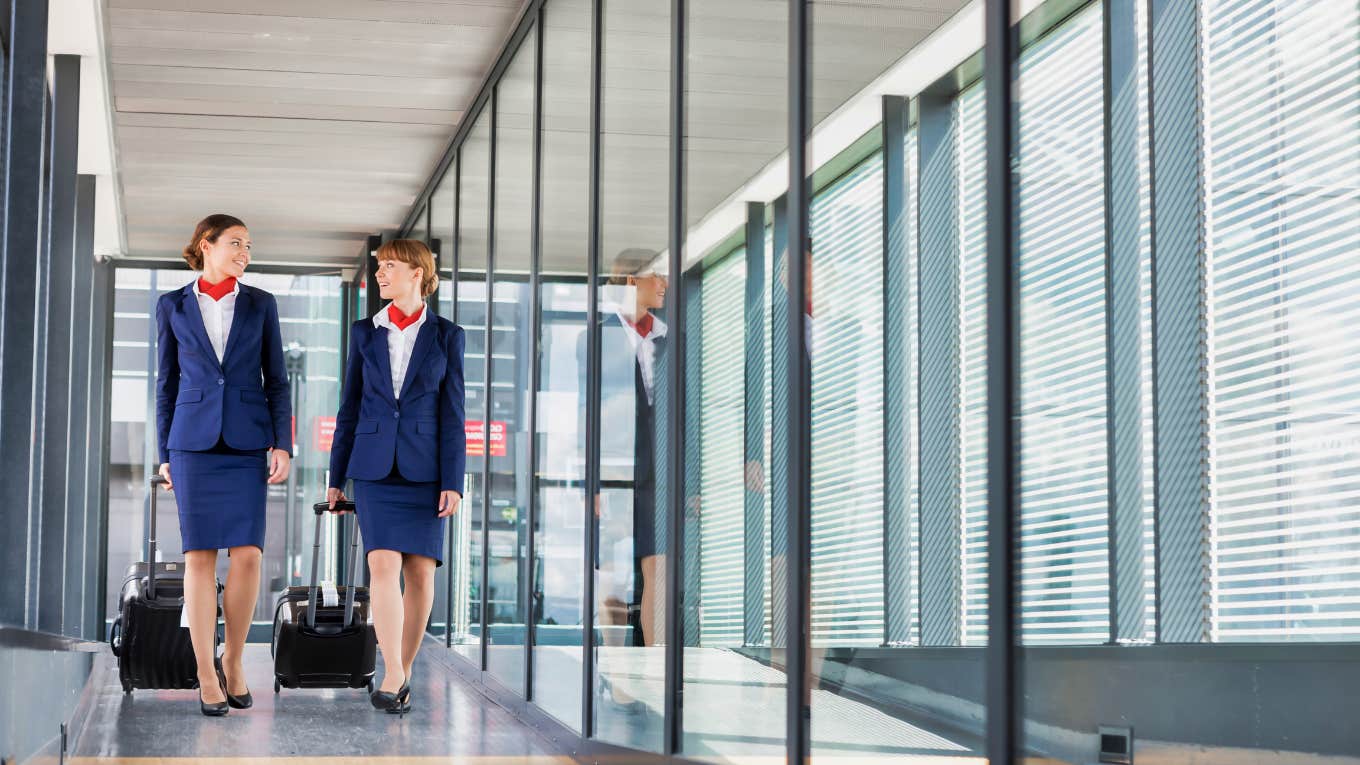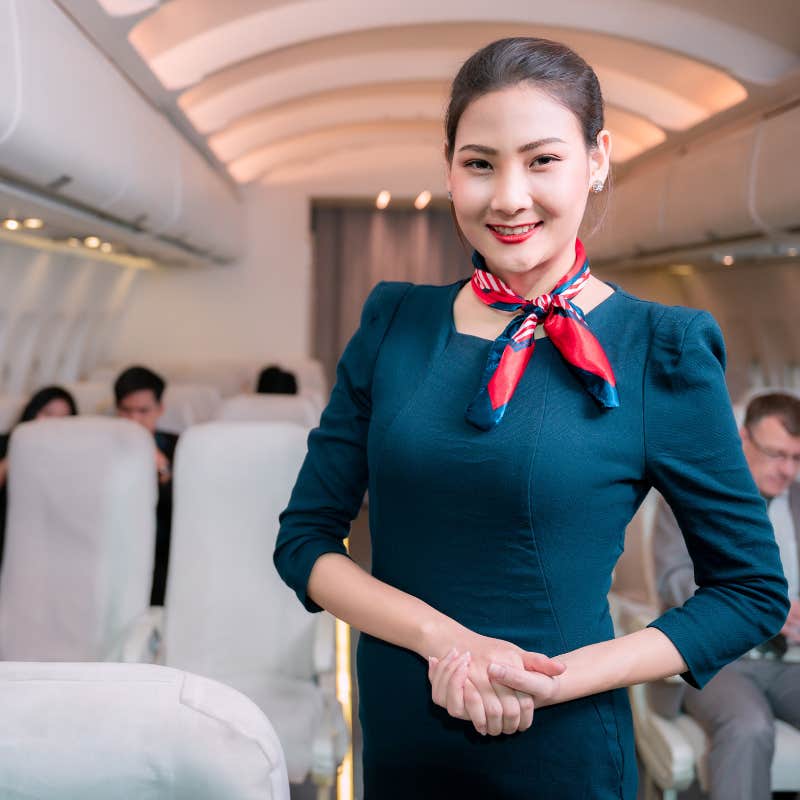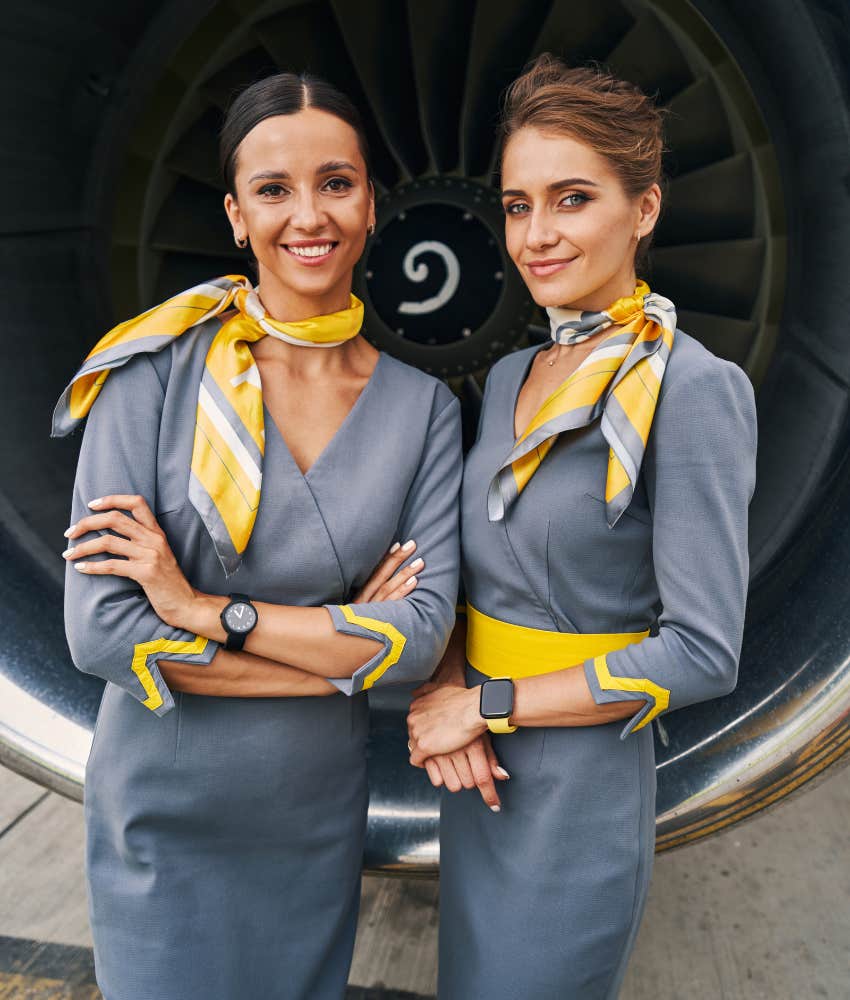Delta Airlines Issues An Odd Memo To Prospective Flight Attendants About The Type Of 'Underwear' They Should Wear To Interviews
The airline insisted that they want a certain level of professionalism from flight attendant applicants.
 moodboard | Canva Teams
moodboard | Canva Teams When it comes to being a flight attendant, there are certain rules that they must adhere to, especially regarding their appearance, which may include guidelines on clothes, hair, and even nails. For example, Delta Airlines requires their flight attendants to keep their nails trimmed and wear certain nail polish colors, like pink and red.
However, Delta recently issued a memo to all prospective flight attendants about what they should wear during interviews, and it's caused a bit of a stir. While it's important to display a level of professionalism during the interview process, Delta took it a step further with directives regarding undergarments.
They told prospective flight attendants about the type of 'underwear' they should wear to interviews.
A leaked document explaining Delta Airlines' "appearance requirements" for applicants interviewing to work at the company was obtained by travel news site Paddle Your Own Kanoo.
Delta corporate seemed very concerned about what most women will recognize as VPL or visible panty lines.
 Jub Job from Getty Images | Canva Pro
Jub Job from Getty Images | Canva Pro
In addition to telling applicants that "proper undergarments must be worn but must not be visible," the document also reminded potential new hires not to use profanity during their interviews and that chewing gum isn’t permitted throughout the assessment day.
"The customer service experience begins the moment a Flight Attendant puts on their uniform. The Delta uniform represents always putting safety first, pride in the Delta culture, and demonstrates a genuine graciousness that will be remembered by our customers," the document read. "To help ensure commitment to Delta’s brand and customer service, we have created updated appearance requirements for your interview process."
Delta insisted that any clothing worn to an interview must be "professional and fit properly," while "dresses and skirts should be at or below knee length."
Athletic shoes are not allowed, and shoes worn must be closed-toe flats, heels, or slingbacks. For those who wear the male uniform, a tie is required with button-collared dress shirts.
Critics have often pointed to the sexualization of the female cabin crew uniform, and this memo doesn't do the discourse any favors.
Skirts, high heels, low-cut blouses, and tight clothing are all indicative of the type of clothes that women are stereotyped to wear in the airline industry.
 Svitlana Hulko | Shutterstock
Svitlana Hulko | Shutterstock
In fact, according to the ACLU, there was the case of Wetherell v. Alaska Airlines, in which a nonbinary flight attendant was required to follow an inflexible uniform policy that forced them to conform to rigid gender stereotypes.
In May 2023, the ACLU, the ACLU of Washington, and the Washington State Attorney General’s Office managed to secure a consent decree against Alaska Airlines, requiring the removal of all gendered restrictions from its uniform policy for flight attendants and additional training on gender identity and gender expression.
There have been longstanding arguments about what it means to dress professionally for interviews.
There's definitely one group that constantly challenges the status quo of workplace norms and dynamics, especially when it comes to clothing worn during interviews.
Gen Z has come under fire for their attitude when it comes to professionalism, so much so that hiring managers are incredibly wary of them.
Nearly all respondents (94%) to a study conducted by HR Drive reported a Gen Z candidate acting inappropriately during an interview. Gen Z applicants ask for too much money, don’t have communication skills, don’t seem engaged, dress inappropriately, and fall short of eye contact. Despite the notion, Gen Zers are not willing to give into the professionalism stereotypes and expectations if it doesn't mean they can't be comfortable.
In an interview with Newsweek, Annie Rosencrans, People & Culture Director at HiBob, explained that a company's dress code is an important indicator of its values and tells candidates what they can expect from them as an employer.
She claimed that beyond allowing people to be more comfortable, which brings up the amount of employee satisfaction, when people can express themselves individually, a culture of belonging can be nurtured.
As long as you're not wearing anything inappropriate to a job interview, there should be room to at least find a modicum of comfort in the high-stress environment, especially when it comes to undergarments.
Nia Tipton is a Chicago-based entertainment, news, and lifestyle writer whose work delves into modern-day issues and experiences.

